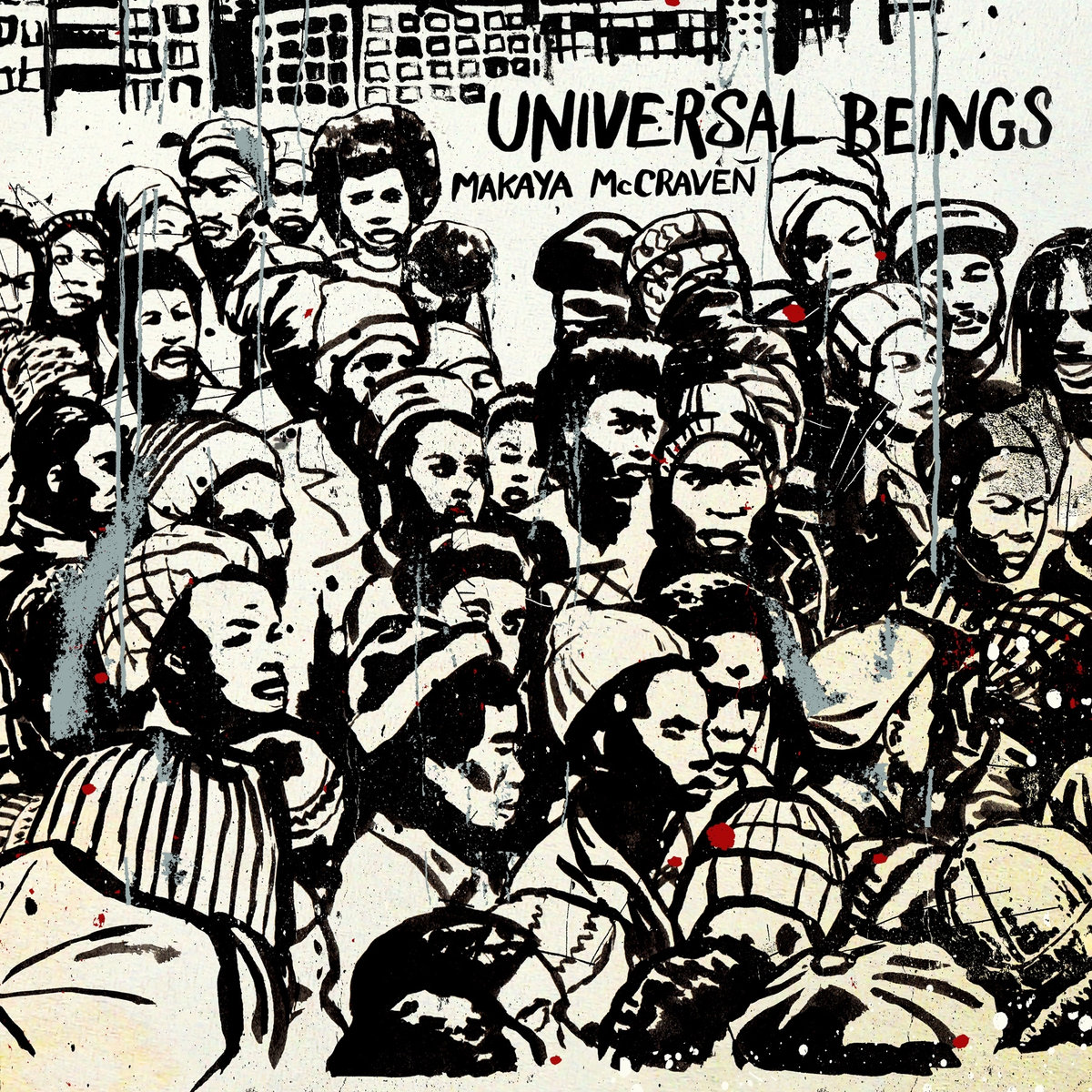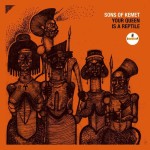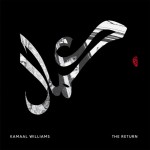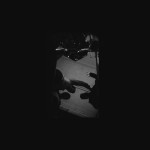Makaya McCraven : Universal Beings

Depending on who you ask, the great jazz renaissance of the ’10s is happening in either London or Los Angeles. In fact, it’s almost cliche at this point to point to either, though by no means an exaggeration, thanks to recent herculean efforts by the likes of Kamasi Washington or Shabaka Hutchings. But it’s more complicated to pinpoint an epicenter when considering a figure like Makaya McCraven. Born in Paris, raised in New England and currently residing in Chicago, McCraven’s called many cities home, and just as complicated as his nomadic history is that of his take on jazz. McCraven is a drummer, and his recordings tend to feature a prominent focus on rhythm, despite their ethereal, psychedelic nature. But McCraven is more than that—he’s a producer and a collagist, taking jazz arrangements and crafting them into something altogether new via loops, sampling and modern editing techniques. Where jazz ends and downtempo or hip-hop begins remains an open question with a musician like him.
Universal Beings doesn’t seek to answer that question but rather blur the lines further. A lengthy, 22-track collection that includes performances from the likes of Hutchings, saxophonist Nubya Garcia, harpist Brandee Younger (a collaborator with Lauryn Hill and Moses Sumney), Pharoah Sanders bassist Dezron Douglas, Art Ensemble of Chicago’s Junius Paul, Jeff Parker and many other artists, Universal Beings creates a solid foundation through the efforts of some of jazz’s best performers of the moment. Yet it’s just a starting point, McCraven after the fact taking these live-recorded sessions and re-editing them into four seamless, side-long suites that represent not only different aspects of contemporary jazz but different moods and approaches as well. As flawed an idea as it might be to try to encapsulate a wide-ranging sampling of contemporary jazz all in one 2xLP collection might be, McCraven ably pulls it off by not only working with the kinds of musicians capable of giving dynamite performances but by curating the end result and packaging it in such a way that it’s more conceptually streamlined than four free-flowing jazz sessions might otherwise be.
The New York Side, or Side A, is an ethereal opening that primarily focuses on the melodic sensibilities of Younger and vibraphonist Joel Ross. It feels more ambient and late-nite in its sensibility, the kind of sound that more naturally lends itself to being edited into a downtempo jam. And in the case of standout “Black Lion,” literally is. Though by and large the sessions feel closer to the psychedelic spiritual jazz of Alice Coltrane, whose own harp playing on albums such as Journey into Satchidananda was transcendent. The Chicago side is more fiery and soulful, thanks in large part to the contributions of Hutchings, whose playing always leaves an indelible impression on everything he touches. The nine-minute “Atlantic Black,” for instance, is a sprawling intersection of string-driven atmosphere and white-hot groove, while “Wise Man, Wiser Woman” is smoky and cool, and “Prosperity’s Fear” reshapes discordance into something hypnotic.
By and large, the London side is more dense and atmospheric, as evident on soundscapes such as “Voila,” though “Suite Haus” cooks up a reggae-informed rhythm that works beautifully. The Los Angeles Side promises a bit more chaos in intro “The Count Off,” though there’s a level of serenity here amid the more abrasive sensibility, particularly in the laid-back groove of “Butters’s,” or the haunting sprawl of “The Fifth Monk.”
On a purely technical level, what McCraven does on Universal Beings might seem sacrilegious in terms of acoustic jazz, though there’s long precedent for this kind of cut-and-paste exploration. Miles Davis in the late ’60s and early ’70s crafted his electric fusion suites on In A Silent Way and Bitches Brew in part by stitching together disparately recorded parts. And since the ’90s at least, jazz breaks have been recontextualized over and over again by different DJs and producers. What makes McCraven’s approach innovative is that he’s still ultimately working toward the goal of creating a great jazz album—of using instrumental improvisation as a means of finding magic. In that sense, it might be almost more like an album by Talk Talk, where days’ worth of sessions provided the groundwork for a six-minute track. It’s hard not to marvel at the ambition of this project, bu that alone isn’t what makes Universal Beings special. No doubt, McCraven’s own ear guides these wonderfully hypnotic tracks. But it sure doesn’t hurt to have the caliber of musicians who can be heard throughout the album. With McCraven’s vision and dozens of ringers providing such rich source material, finding that magic would seem inevitable.
Label: International Anthem
Year: 2018
Buy this album at Turntable Lab
Similar Albums: Sons of Kemet – Your Queen Is A Reptile
Sons of Kemet – Your Queen Is A Reptile Kamaal Williams – The Return
Kamaal Williams – The Return Badbadnotgood – III
Badbadnotgood – III
Jeff Terich is the founder and editor of Treble. He's been writing about music for 20 years and has been published at American Songwriter, Bandcamp Daily, Reverb, Spin, Stereogum, uDiscoverMusic, VinylMePlease and some others that he's forgetting right now. He's still not tired of it.

